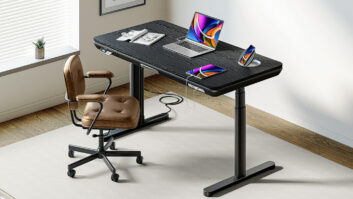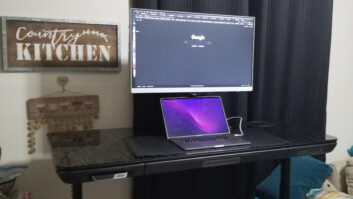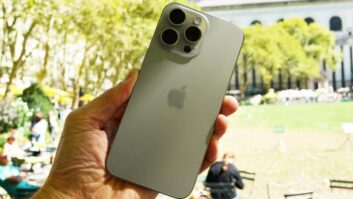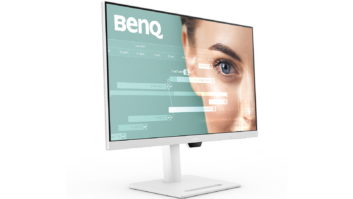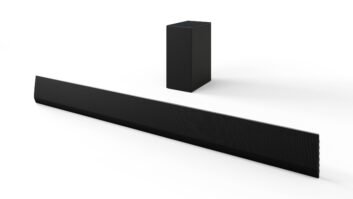NEW YORK — Microsoft had to buy Nokia’s cellphone business if it wanted its Windows Phone 8 OS to remain a viable competitor in the smartphone OS wars, but the OS’s success is far from assured, analysts said.
The deep-pocked software giant will have to spend a lot of money, execute smartly, and do what it can to ensure that other smartphone makers do not back away from their commitment to license the Microsoft OS for their devices, analysts said.
Microsoft and Nokia expect the purchase to be complete in the first quarter of next year. The $7.17 billion deal includes a 10-year license of Nokia’s patent portfolio at a value of $2.17 billion and the purchase of cosmetic-design patents.
Nokia accounts for 85 percent of global Windows Phone 8 shipments, according to Canaccord, but the company’s handset division continues to post operating losses. Through a close two-year partnership, Nokia and Microsoft have been able to boost Windows Phone’s worldwide share, surpassing BlackBerry, but Windows Phone 8 still accounted for only 3.3 percent of second-quarter share compared to 14 percent for iOS and 79 percent for Android, Gartner research shows.
In a conference call, Microsoft operating systems executive VP Terry Myerson saw the purchase as “unlocking our potential to win in mobile devices.” He and other executives said the integration of Nokia’s manufacturing and marketing capabilities with Microsoft would enable the company to more deeply integrate the OS with hardware, accelerate innovation, and create the scale to compete against Apple and Android. Licensing the Windows OS to OEMs, Myerson added, is “prohibitively expensive from a marketing standpoint.”
The merged companies will also be able to present one brand with a unified voice, simplifying the consumer branding message, they said.
The acquisition will deliver “faster innovation, better products, and unified branding and marketing,” said Stephen Elop, formerly Nokia CEO and now Nokia’s device division executive VP. The company will also be able to “invest more resources” in growth, he added. Elop will become executive VP of Microsoft devices when the acquisition closes.
Microsoft CEO Steve Ballmer said the acquisition wouldn’t drive existing smartphones licensees away because Microsoft will get the opportunity to “blaze trails” as a first-party supplier. The company also contends that it has strong relationships in place with other-brand tablet makers despite last year’s launch of Microsoft-brand tablets.
Microsoft has targeted a market share of 15 percent by 2018.
Industry analyst Mark Lowenstein said Microsoft has a few things going for it, including “tons of cash” and a desire by carriers and the app-developer community to support “a third ecosystem to counterbalance Apple and Google.”
Lowenstein added, “Microsoft and Nokia are two companies with incredible resources, talent, patents, marquee products, and R&D capabilities. “If Steve Ballmer, his successor, and the executive team can make all of these hum and place the right strategic bets, and execute on them, Microsoft still has a shot of being a meaningful player in mobile.”
For Futuresource Consulting analyst Oliver Rowntree, the acquisition won’t be successful unless it “can drive apps development for Windows to compete with the momentum of iOS and Android.” He also warned that “by moving into smartphone hardware, Microsoft may alienate possible OEM partners who could potentially run Windows OS as they will be competing with them as a hardware vendor.”
Despite past failures in marketing hardware, Microsoft could make a go of the Nokia opportunity because it “will have access to Nokia’s engineering resources and channel relationships worldwide, which will be essential to its success in the mobile market,” he said.
Ronan de Renesse of Analysys Mason agreed. “The biggest opportunity for Microsoft is in the non-smartphone space,” he said. “Microsoft will gain a foothold in developing market via Nokia’s non-Lumia device portfolio in China, Middle East and Africa, and Latin America.”
Tony Cripps, principal device analyst at Ovum, warned, “There is still much to resolve if the acquisition is really to have meaningful impact.” Although the two companies “have jointly been increasing the money flow through the Windows Phone marketing faucet of late, it will take mega bucks to take on Apple and Android head-cheerleader Samsung for marketing volume and volume shipments.”




